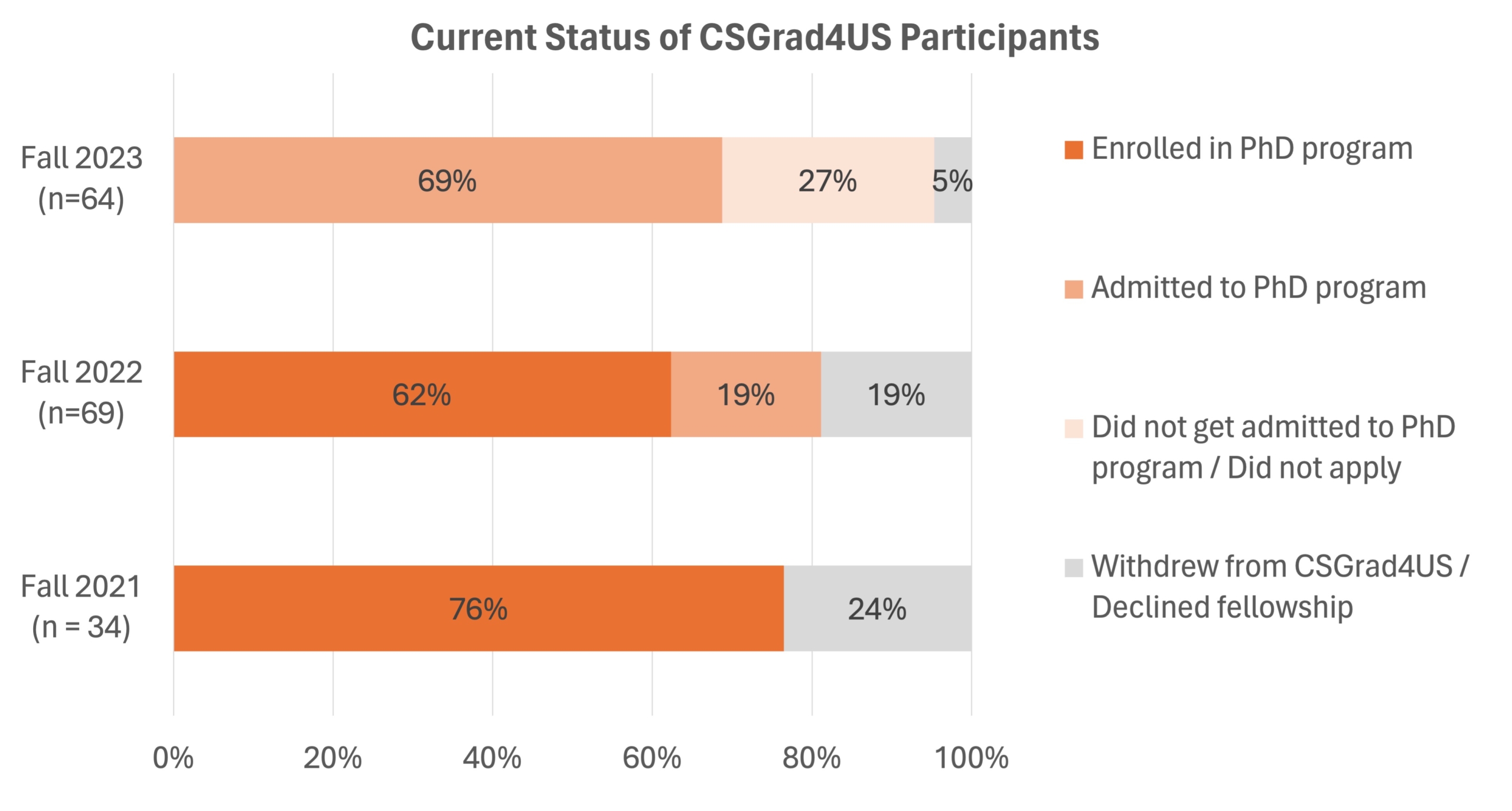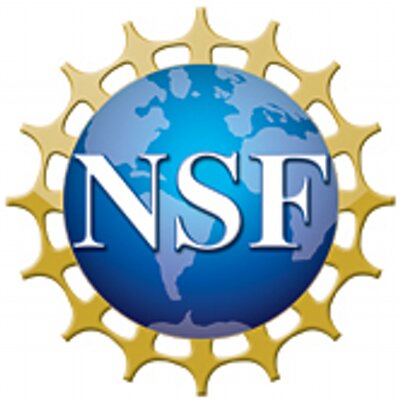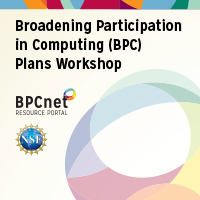
Most NSF CISE CSGrad4US Fellowship Participants Enroll in a PhD Program
The NSF CISE CSGrad4US Graduate Fellowship is a program aimed at increasing the number of diverse domestic PhD students in computing fields. This two-year program helps guide students through the graduate school application process and the first year of graduate school to enable a smooth transition. The Fellowship also provides three years of funding for attending graduate school. CERP has provided evaluation of the CSGrad4US program for the first two cohorts starting in 2021. Evaluation reports for the first two cohorts can be found on the CERP website and are linked below. Among the many findings about the program, CERP has identified that top motivators for why individuals participate in this program are:
- to make an impact on society with an advanced degree
- a desire to continue their learning
- interest in working on advanced research projects
This post provides an update on the current status of the three cohorts of program participants. Tracking data presented in the graphic below shows that the great majority of program participants (70-80%) end up attending a doctoral program while some of the participants opt out of the academic career path after showing initial interest in working towards a graduate program.
It is important to note that, given the stage that each cohort of participants are at in the process, the information regarding each cohort’s current status is slightly varied. Specifically, while fall 2021 and fall 2022 cohorts are already enrolled in their doctoral programs, the participants of the fall 2023 cohort are currently in the admissions stage and will be starting their programs within the next year. Further, cohort 3 participants from the fall 2023 mentoring program who were not admitted/did not apply to a PhD program are eligible to apply in fall 2024.
References:
CRA-E/CRA-WP CSGrad4US Mentoring Program: Cohort One Year One Key Finding Report
CRA-E/CRA-WP CSGrad4US Mentoring Program: Cohort One Year One Immediate Impact Evaluation Report
CRA-E/CRA-WP CSGrad4US Mentoring Program: Cohort One Year Two Immediate Impact Evaluation Report
CRA-E/CRA-WP CSGrad4US Mentoring Program: Cohort Two Year One Key Findings Report
CRA-E/CRA-WP CSGrad4US Mentoring Program: Cohort Two Year One Immediate Impact Evaluation Report
This post is brought to you by the CRA’s Center for Evaluating the Research Pipeline (CERP). CERP provides social science research and comparative evaluation for the computing community. Subscribe to the CERP newsletter & bulletin by clicking here. The funding for the CSGrad4US program is provided by the National Science Foundation under grant numbers CNS-2123180, CNS-2231962, and CNS-2313998. Any opinions, findings, and conclusions or recommendations expressed in this material are those of the author(s) and do not necessarily reflect the views of the National Science Foundation.





 This post was originally published in CRA Bulletin on April 4, 2022
This post was originally published in CRA Bulletin on April 4, 2022 


